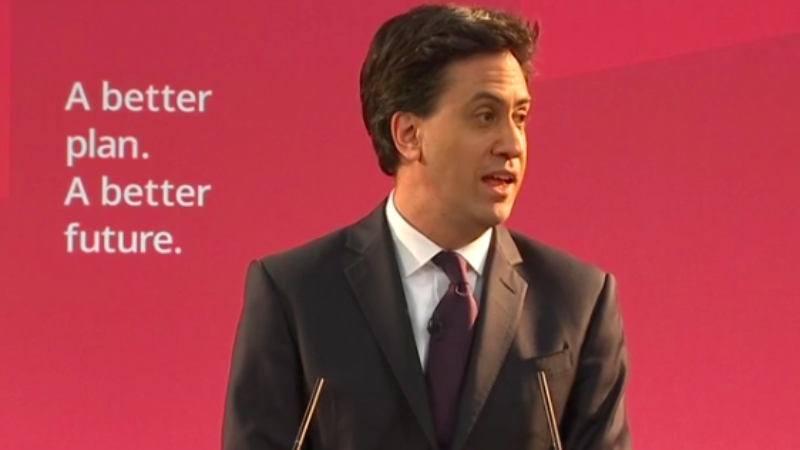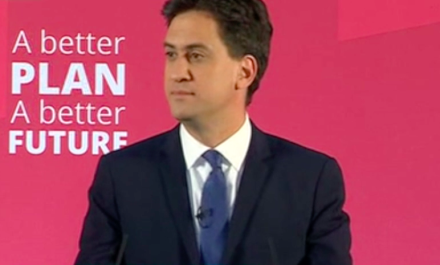

Ed Miliband was warned about the negative public attitudes to Labour’s positions on deficit reduction, controlling immigration and welfare reform shortly after being elected leader. The Guardian reports that a leaked memo, based on sessions with focus groups in September 2010, advised that the the party needed a “new approach” on these “threshold issues”.
The memo was written by James Morris, who worked a pollster for Ed Miliband and the Labour Party. Morris works for the polling company GQRR, which was hired by the TUC to for their post-2015 election research this May: five years after the original memo, that polling found that Labour lost because it was seen as ‘too profligate, too soft on welfare and immigration, and too incompetent’.
Reacting to the leaking of the memo, Morris tweeted some charts from this year’s polling:
https://twitter.com/JamesDMorris/status/628886553679499264
Jon Cruddas also released the first findings of his independent review into Labour’s defeat today. Writing on LabourList, he said the findings showed “the Tories didn’t win despite austerity, they won because of it”. The three sets of research will make for miserable reading for Labour supporters, as they show how little Miliband was able to shift public opinion, and how Labour lost for similar reasons in 2015 as in 2010.
In the five year old memo, Morris wrote:
“There were three very clear threshold issues where the party needs to show a new approach: immigration, benefits and the deficit/economy.”
“Labour is seen as having consistently ignored English people’s views on immigration. A Labour leader who wants to show change has to show that they understand that. This is not just an issue for lost working class voters – it was central to Middle England and a major concern for Lib Dems. Out of the 40 people who took part in the groups only one person mounted any sort of defence of a relatively open policy on immigration.
“The concerns were broad. Among C2s and Ds there was a particular concern about competition from eastern European migrants for work (esp in the trades). There was a universal concern about benefits and the provision of services, with immigrants sending child benefit abroad symbolic of the issue. Just as common was a cultural concern. This was partly about people adopting British culture when they come here and partly about standing up for British and in particular English traditions and English people. There was a strong sense that people who are born and bred in England should be prioritised.
“Linked to immigration, but distinct from it, was the issue of benefits. This was the symbol of a deep concern that Labour does not understand the link between effort and desert (which also coloured views about Labour’s position on 50p tax). People in all the groups felt that, while they worked hard for their money, there were people who are able to sit at home and not work.
“This was put down to two things – first that some people are lazy and choose not to work; and second that Labour has created a system in which many people are better off on benefits than in work.
“Labour is seen to have been a principal architect and defender of a benefits culture. Participants in all the groups felt they knew people who were leading lights in that culture, while they went out to work. Several people in the ‘lost working class’ thought they would be better off financially if they didn’t work.”
The pollster also warned Miliband that taking a more anti-austerity stance would not stand any chance of success unless the media became more receptive to the idea:
“The test for a political party is whether they recognise the problem and promise to address it by matching spending to income. A Labour leader who argues that we should keep spending to secure growth is flying in the face of common sense and would need a volte face by the entire media to have any chance of success.”
He also highlighted how the issues that Miliband campaigned on, and had delivered him success, in the leadership contest of 2010 would not prove as popular with the wider public. He wrote:
“The overwhelming response to the campaign’s key policy positions (tuition fees, iraq, 50p, harder for longer for less, civil liberties, getting away from idea that private=good, restraining markets) was that they are largely irrelevant to the issues that they face and that they want the Labour party to address.”




More from LabourList
‘Lammy has shattered Labour’s Brexit omerta and reopened discussion on relations with the EU’
Fair pay agreement for care: The most radical policy no-one’s heard of
‘Rushing a UK–EU customs union now would undermine real progress’